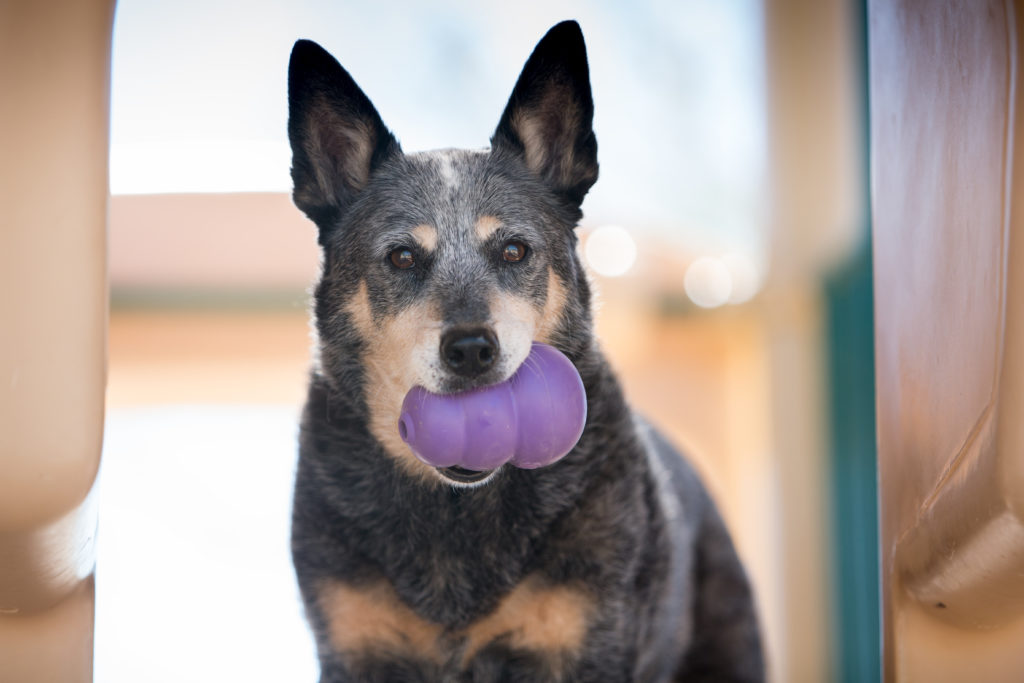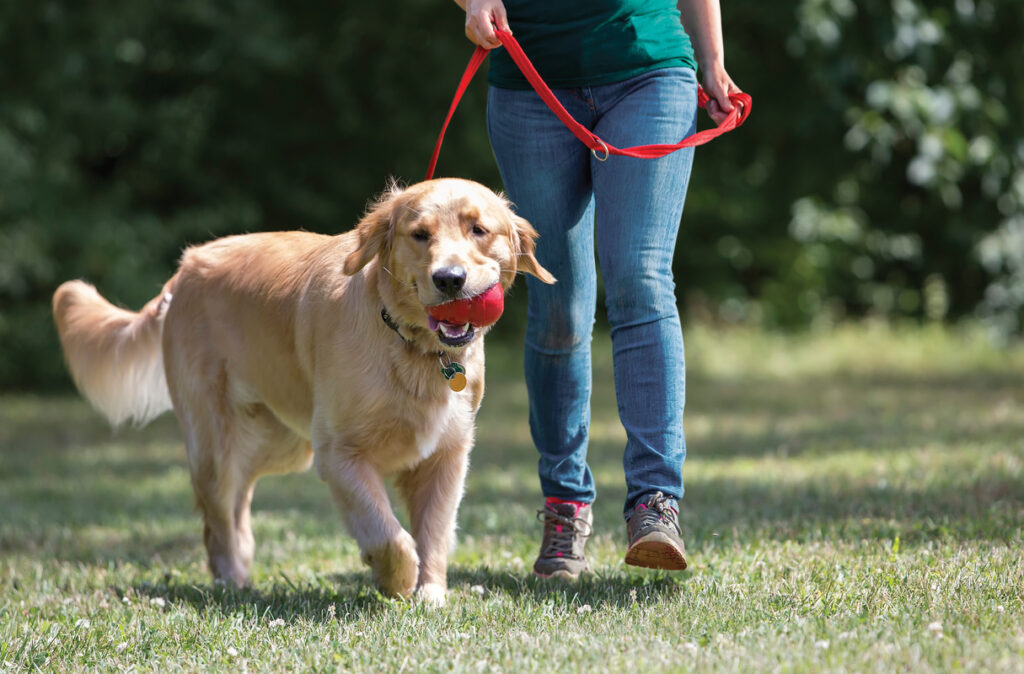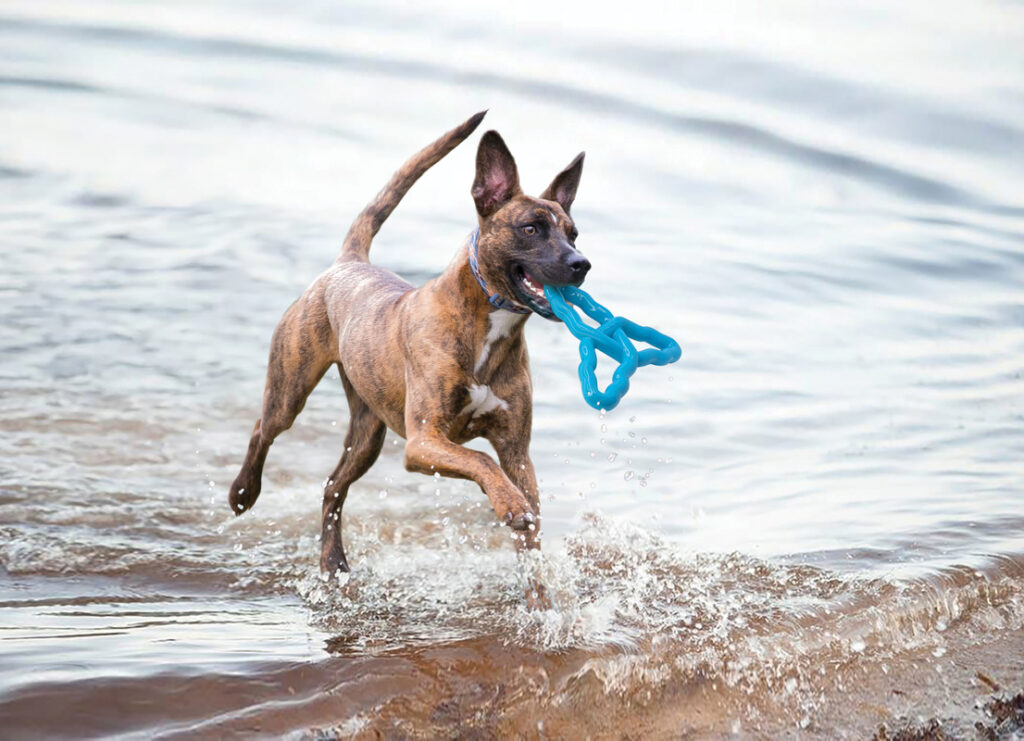The excitement and joy we regularly see in our dogs are enviable, to say the least, especially on days where even a fleeting bit of energy seems impossible to come by. However, there are times that their excitement can manifest in ways that go beyond just cute and actually become somewhat destructive.
Not only do these behaviors have the capacity to harm furniture and your dog’s surrounding environment, but they also have the ability to hurt pet parents as well.
One of the most notable and common of these excited but destructive behaviors is when dogs start nipping and biting. They may do this to a toy, they may do it to the couch, or they may do it to your hand. It is always essential to redirect this energy in a way that is equal parts productive and non-destructive.
Learn how to correct and redirect this behavior below:
Why Do Dogs Nip and Bite?
It is exceedingly common for dogs to mouth on different surfaces and items. This is especially true in the case of puppies. Puppies are almost always nibbling on something.
This is one of their primary ways of exploring the world around them. Puppies are even more inquisitive than their adult counterparts, so everything becomes a potential object of their biting affection.
In all likelihood, a puppy who is nipping at something does not mean to cause any harm or damage. They are just simply trying to explore, and this is their preferred way of going about it. After all, they cannot use their hands like humans can. Instead, they are left with the option to sniff and bite.
Adult dogs could similarly be using nipping as a method of exploration, or they could see it as a form of play. It is also possible that biting could be a show of aggression from your dog.
If this is the case, it will probably be accompanied by other signs such as growling and barking. Small to midsize dogs have been found more likely to bite, contrary to some common beliefs about large dogs.
Identify the Motivation Behind Your Dog’s Nipping
Once you know exactly why your dog is nipping and biting improperly, the path to eventually eliminating this behavior will become much more clear.
It’s time to talk training. Puppies are undoubtedly rambunctious and mischievous, but they are also eager to please and ready to learn.
By teaching them bite inhibition (more on that later), they will become much more mild-mannered adults. In addition, you will avoid some unpleasant teeth marks in the meantime.
We must socialize and teach our dogs about acceptable behaviors when they are young because these lessons easily follow them into adulthood. Then again, nipping may also be a common behavior in adult dogs. If you have just recently adopted or rescued your adult dog, you might not know their entire training history or full details on their past lives.
As such, it is possible that they were never taught not to bite when they were younger. Luckily, this process can still be performed when they are adults, as there is absolutely no credence to the adage “You can’t teach an old dog new tricks.”
In fact, in some ways, adult dogs are actually easier to teach than puppies. Their energy has leveled out much more. As dogs mature into adulthood, they are able to focus for longer periods of time.
Teach Them Bite Inhibition and To Be Gentle When Playing
Bite inhibition is all about getting your dog to understand that biting should never occur with too much force behind it. This is a crucial lesson to avoid any accidental harm during otherwise innocent play or excitement.
Bite inhibition also comes into play when your dog is afraid or possibly displaying more defensive behaviors. If they have been properly trained, they will still hold back on the force of their bite.
In order to teach a dog bite inhibition, there are a few different routes that can be taken. First, if your dog bites you, try to let out a louder yelp-like noise or an “ow” or “hey” to indicate pain and displeasure.
This works well because many dogs learn bite inhibition from their mothers or littermates. Nipping is common when playing with other dogs, but if they bite too hard, one of their siblings will probably make a loud noise. This negative social reinforcement deters them from biting that hard in the future. Making a yelping sound mimics that lesson they learn from their fellow dogs.
This could cause some dogs to become more excited, which is the opposite of the goal. If this appears to be the case for your dog, rather than making a noise, simply turn away quietly. Biting should always lead to a form of timeout. If in the middle of playing and a bite occurs, all play should cease.
Give Them Toys and Items That Are Safe To Bite
Bite inhibition is an important practice for those occasions when a bite or nip does occur. But, generally speaking, you should be able to anticipate your dog’s needs and have a deterrent ready. This will teach them to direct their biting onto toys and appropriate items, creating an association that your hands are not for biting.
For puppies that are teething or dogs who simply can’t quite kick nipping completely, it is important to give them alternatives that are safe to bite. Expecting absolutely no biting at any time is getting rid of a large way that your dog explores their world. Rather than eliminating this practice in every aspect of your dog’s life and behaviors, focus on making sure that any remaining biting is productive.
Be sure to keep toys that are appropriate for biting nearby so that you can always have them available and at the ready whenever your dog starts getting nippy.
Find Productive Ways To Get Rid of Your Dog’s Excess Energy
The exact amount of energy that your dog is working with per day will depend on a variety of factors, such as their gender, breed, age, and stage of maturity. Just like with humans, some days will simply be higher energy than others. Alternatively, your dog may also have days where they only seem to get up to eat, use the bathroom, and switch to another cozy surface.
Days where your dog can’t seem to get out of bed and days where your dog is endlessly excited have their advantages and disadvantages. On those days when your dog just cannot seem to get enough playtime, it is a worthwhile practice to take them outside for some high-quality exercise.
Perhaps your dog can’t get enough of a long walk or a fun-filled hike. If you do not have the time for those or your dog has already had their walk, take them out for some fetch and other games.
Not only will these go a long way in tiring out your dog and making them much less likely to nip, but playing together also strengthens the bond between pet and pet parent significantly.
Do Not Use Your Fingers To Get Them Ready for Play
Even if your training is excellent, just about any dog might be prone to misunderstanding the rules on nipping if your fingers are only sometimes playthings.
In these moments, your dog is amped up. Even if they might not mean to bite your hand, everything may blend together as one big toy for them to play with.
If they do bite your hand or fingers, this is when having taught bite inhibition is so crucial. No matter what, your dog will know not to bite down too hard, avoiding any harm to you beyond some slight discomfort and possible weird marks. If your dog does bite you while playing, do not quickly or unpredictably jerk your hand away.
Even though this might be a perfectly reasonable instinct to escape their grasp, this will likely only tell your dog that the game is continuing. Depending on how you move away, this action could mimic the motion of a toy.
Appropriate Excitement Behaviors Are Possible
Even when your dog’s excitement feels overwhelming, it is always possible to teach them proper methods of showing their feelings. Through careful training and an abundance of patience, your dog can learn to only bite appropriate objects and leave both your hand and unsuspecting furniture alone.
If you are at all concerned that your dog’s nipping and biting may go beyond ways of showing simple excitement, or if you just have any questions regarding these or other behaviors, know that there are qualified professionals always available to help.
With the KONG Club app, you can work directly with our trainers and coaches to build plans that help manage your pet’s behavior and daily wellness.
Sources:
Dog Bite Risk and Prevention: The Role of Breed | American Veterinary Medical Association
Energy Requirements of Adult Dogs: A Meta-Analysis | National Center for Biotechnology Information
Lifespan development of attentiveness in domestic dogs: drawing parallels with humans | NCBI



